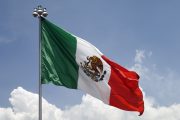
The fifth annual report from the Fraser Institute, “The Human Freedom Index,” showed the United States falling further in a global measurement of personal, civil, and economic freedom, from 17th place in 2011 to 20th in 2012 (the latest year for which reliable data is available). Ahead of the United States are Canada in 6th place and the United Kingdom, in 9th place. The United States barely edges out the Czech Republic and Estonia, in 21st and 22nd places respectively.
Wrote Ian Vasquez, one of the report’s co-authors:
The U.S. performance is worrisome and shows that the United States can no longer claim to be the leading bastion of liberty in the world. In addition to the expansion of the regulatory state and drop in economic freedom, the war on terror, the war on drugs, and the erosion of property rights due to greater use of eminent domain all likely have contributed to the U.S. decline.
Since 2008, the Fraser Institute, along with the Cato Institute and the Friedrich Naumann Foundation for Freedom out of Berlin, have examined 76 distinct indicators to see just where freedom is being gained, or lost, among 152 countries. They look at the following areas:
The Rule of Law;
Freedom of Religion;
Freedom of Association and Assembly;
Freedom of Expression;
The Size of Government;
The Security of Property Rights;
The Soundness of the Currency; and
The Degree of Regulation of Credit, Labor, and Business.
Freedom is important, according to the authors, because it represents the highest human aspiration, without which all other’s are denigrated or unachievable:
Freedom should be a human goal of [the] highest order, a purpose in itself. Everything that makes a human truly human is lacking when there is no freedom.
Socialism, on the other hand, is the antithesis of freedom:
Socialism and [the] other species of illiberal regimes have always been a temptation because they seem to promise a direct shortcut to achieve these goals without having to rely on a seemingly opaque evolutionary and spontaneous [i. e., the free market] mode of development; it would appear that all that is necessary is a robust use of unrestrained power.
In that single paragraph is encapsulated the essence of the Constitution’s purpose: the restraining of that temptation by those in the national government to take that shortcut, thus allowing the individual sovereign citizens to work out their own destinies by themselves. The Declaration of Independence, “the most remarkable document ever struck off by the hand of man at a given time,” as President Calvin Coolidge noted, told the world the reason for the American Revolution:
We hold these Truths to be self-evident, that all Men are created equal, that they are endowed by their Creator with certain unalienable Rights, that among these are Life, Liberty and the Pursuit of Happiness — that to secure these Rights, Governments are instituted among Men, deriving their just Powers from the Consent of the Governed.
What the latest from the Fraser Institute does is illustrate, in its 116-page report, just how the United States is losing its freedom, inch-by-inch, salami-slice-by-salami-slice, without most of those sovereign citizens even noticing. Even though the overall index for the United States only declined from 8.34 (out of 10) in 2008 to 8.26 in 2012, the story behind the headline reveals volumes.
In the Rule of Law category, the United States fell from 6.8 to 6.5, suffering from a decline in both “procedural” justice and “civil” justice. The authors explain:
Procedural justice … is composed of the average of three indicators measuring “the right to life and security” of a person, “due process of law and [the] rights of the accused,” and “freedom from arbitrary interference with privacy.”
That index dropped from 7.3 in 2008 to 6.9 in 2012.
Civil justice … [measures] whether [a citizen] is free of discrimination, corruption, and improper government influence [and whether] alternative dispute resolution mechanisms are accessible, impartial, and effective.
That index dropped from 6.5 in 2008 to 6.1 in 2012.
The next salami slice concerned the freedom of movement. As the authors noted: “The freedom to travel is a basic human right and [is] essential to a free society. Governments that restrict people’s movement greatly limit their scope of overall liberty.” The indicator marking the freedom of an American citizen to leave the country fell from 10.0 in 2008 to 5.0 five years later.
The final slice the authors called “Political Pressures and Controls on Media Content,” with that indicator falling in the United States from 8.0 in 2008 to 7.5 in 2012. Wrote the authors:
[This is an assessment] of the political environment’s influence on the media, namely, political pressure over news and editorial content … and the vibrancy of the media and the diversity of news [sources] available within [the] country.
The greatest service provided by the report, for those looking carefully, is learning just how precious freedoms are lost. If America’s decline is allowed to continue, the question posed by the last stanza of the country’s National Anthem, will be answered in the negative:
O say does that star-spangled banner yet wave, o’er the land of the free and the home of the brave?
A graduate of an Ivy League school and a former investment advisor, Bob is a regular contributor to The New American magazine and blogs frequently at www.LightFromTheRight.com, primarily on economics and politics.



